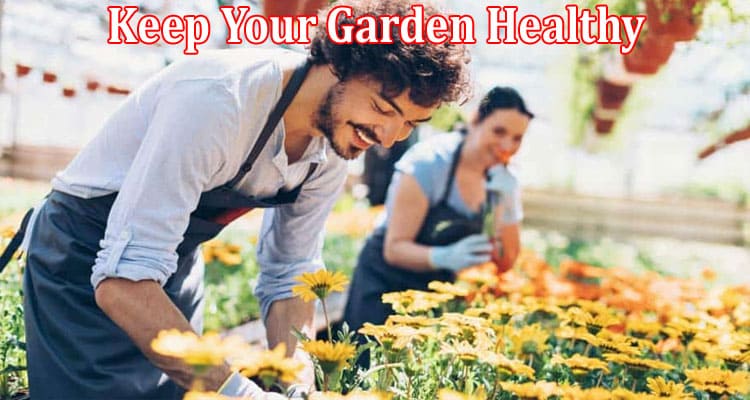11 Ways to Keep Your Garden Healthy
Intro
Having a thriving garden is the dream of many homeowners, but it can be hard to keep your plants happy and healthy.
Fortunately, there are some simple steps you can take that will help ensure your garden stays in tip-top shape. Here are 11 ways to keep your garden healthy and beautiful!
From using soil test kits to introducing beneficial insects into the mix, this is everything to know about keeping your garden looking and feeling beautiful and healthy!
1. Use a Soil Test Kit
A soil test kit is a great tool to help ensure that your garden is getting the right nutrients and balance of minerals it needs.
It helps you determine pH levels, presence of organic matter, and nutrient levels in the soil so you can choose the best fertilizer for your plants.
Using a soil test kit regularly is the best way to ensure that your soil is healthy and conducive to growing beautiful plants.
2. Choose the Right Fertilizer
Choosing the right fertilizer for your garden can be tricky, but it’s important to do so for maximum results.
Different plants require different types of fertilizer, so research which type is best for each variety in your garden.
Knowing the nutrient levels in your soil from a test kit can also help you decide which fertilizer to use.
3. Amend Your Soil
Adding organic matter to your soil is an important step for building healthy, fertile soil for your plants.
Compost, leaf mold, and animal manure are all great options to help add nutrients and improve soil structure.
Adding these types of amendments helps hold water and air better in the soil, making it easier for plants to absorb the nutrients they need. Plants needs can vary significantly.
What a cannabis plant needs will look completely different from wildflower needs and so on. Find more information on cannabis plants at Veriheal.
4. Water Regularly and Properly
Water is essential for any garden, but it’s important to make sure you’re watering your plants in the right way.
Water at the base of each plant rather than from above and make sure to avoid any stagnant water that may be collecting near the roots.
Try to water your garden early in the morning so it has time to absorb moisture before the heat of the day sets in.
5. Monitor Sunlight and Shade Patterns in Your Garden
Sunlight is essential for any garden, but it’s important to make sure that your plants are getting the right amount of sun.
Monitor how much sunlight each area of your garden gets throughout the day and adjust accordingly by moving plants or adding shade cloth as needed.
Too much direct sunlight can damage many plants, so it’s important to make sure they are getting the right balance.
6. Prune Plants Regularly
Pruning is an essential step for keeping plants healthy and strong.
Not only does regular pruning maintain a good shape and size for your plants, but it also encourages new growth and helps to remove diseased or damaged parts.
Pruning also helps promote air flow, which reduces the chance of fungal diseases spreading throughout your garden.
7. Plant New Varieties for Added Diversity
Adding new varieties of plants to your garden can help ensure that you’re growing healthy and diverse plants in your space.
Different varieties often require different types of care, so adding more variety can help you keep your garden healthy and thriving.
8. Control Weeds Early On
Weeds are one of the biggest enemies to a healthy and thriving garden.
Make sure to take steps early on to prevent them from taking over your garden by using mulch or other barriers and pulling out weeds as soon as you spot them.
9. Rotate Crops Year to Year
Rotating crops every year helps reduce soil-borne diseases, prevents pest buildup, and improves the overall health of your garden.
This also gives plants more time to get the nutrients they need from the soil before being replanted in the same space.
10. Introduce Beneficial Insects into Your Garden
Some insects are actually beneficial to a garden and can help keep it healthy by eating pests or pollinating plants.
Attracting beneficial insects such as ladybugs, bees, and butterflies is a great way to help ensure your garden stays healthy and thriving throughout the season.
11. Avoid Harsh Pesticides
Using harsh pesticides or chemicals can do more harm than good to your garden, so it’s important to avoid them whenever possible.
If you must use a pesticide, make sure to read the label carefully and only use it when absolutely necessary.
It’s often better to focus on preventive measures such as companion planting, mulching, and crop rotation to help keep pests away.
Here are just a few natural pesticides to get you started.
Conclusion
By following these steps you can ensure that your garden stays healthy and flourishing for years to come.
With a little bit of care and attention, you’ll be able to enjoy the fruits (and vegetables!) of your labor for many seasons to come. Happy gardening!




